We want to see a Smokefree Aotearoa and a future free from cancers caused by smoking.
As the greatest preventable cause of cancer in Aotearoa New Zealand, tobacco smoking is a key focus for the Cancer Society.
Everyone has a part to play in keeping the next generation Auahi Kore (Smokefree and healthy).

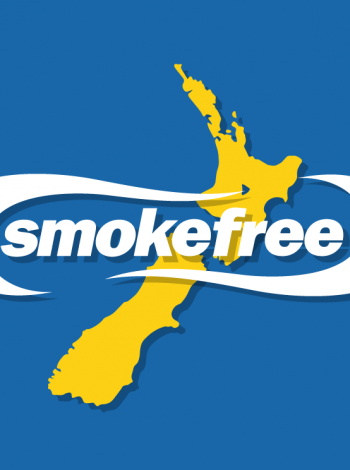
Global Tobacco Interference
How the tobacco industry interferes with government efforts to develop essential tobacco control policies in Aotearoa
Read moreFourteen New Zealanders a day die from tobacco use
- Smoking causes more than 20% of all cancer deaths each year. It is the largest preventable cause of cancer.
- 14 New Zealanders die each day from illnesses related to tobacco use.
- Tobacco causes enormous damage to our health and well-being. But it’s also a public health battle we can win.
There is no such thing as "safe" smoking
- All tobacco products are dangerous. There is no safe exposure to cigarettes and there is no safe tobacco product.
- Even smoking one to two cigarettes per day is very harmful.
- Cigarettes, roll-your-own cigarettes, chewing tobacco, pipes, cigars, cigarillos, heated tobacco, snus, snuff, bidi and hookah (water pipe), all cause immediate and long-term damage to the body.
Seventy chemicals in tobacco smoke cause cancer
- Smoking is dangerous because of the thousands of toxic chemicals found in tobacco or created when the tobacco is burnt. These chemicals are inhaled and then spread in our bloodstream to other parts of our body.
- At least 70 of the chemicals found in tobacco smoke cause cancer. These chemicals damage the cells that make up our body. This damage can cause cancer.
Lung cancer is just one of many cancers caused by tobacco smoke
- Most of us know that smoking is the number one cause of lung cancer. But it can also cause cancer almost anywhere in our bodies, including the mouth, throat, blood, bowel, kidney, liver, pancreas, stomach, bladder, cervix and ovaries.
- Smoking weakens our immune system, making it harder for the body to kill the cancer cells.
- Cigarettes are even more deadly today than they were in the past. The tobacco industry continually change their products to make them more addictive and easier to smoke.
- Cigarettes now have more chemicals and more nicotine (this substance causes the urge to smoke). Added vent holes in filters cause smokers to inhale more deeply and take more puffs to get the nicotine they crave. Sugar is added to help make it sweeter tasting and the smoke less harsh to inhale.
- Lung cancer risk for people who smoke has risen dramatically. This increase has occurred even though people smoke fewer cigarettes today than they did 10 years ago.
- The sooner you quit, the more you can reduce your chances of getting cancer and other diseases.
Nicotine
- Smoking is an addiction. Nicotine is the drug in tobacco that keeps people smoking. But it is the mix of thousands of chemicals in tobacco, such as tar, that cause death and disease.
- People get addicted to smoking very quickly, often after only smoking a few times and it can be really hard to stop smoking once started.
- One puff of a cigarette delivers nicotine from the lungs to the brain in only a few seconds. It then causes cells in the brain to release dopamine which can create a brief feeling of contentment. The brain comes to expect regular bursts of dopamine. When people try to quit, these brain changes cause strong cravings for nicotine.
- Young people can be more sensitive to nicotine and can become more easily addicted than adults. Smoking (or use of other tobacco products) almost always starts in adolescence.
How to be Smokefree
Quitting smoking is one of the most important things you can do to reduce your risk of cancer.
It may be difficult, but it’s definitely worth it. No matter how long someone has smoked, it is never too late to stop.
People who smoke can make many attempts to quit smoking. Every attempt is a positive step towards quitting permanently.
With help and support, you significantly increase your chances of quitting for good.
A free quit coach will help you put a plan in place and advise you about using nicotine replacement (gum, patches, lozenges), vaping and medications.
Smokefree homes and cars
Make your home and car Smokefree. This will help you prepare to quit and will protect your family from second-hand smoke.
It is against the law to smoke in a car with a child under 18 years of age.
Breathing in smoke from someone else’s cigarette, pipe, or cigar can make you or your children sick. When children breathe second-hand smoke, it is like they are smoking too.
Smoking in cars and homes is even more dangerous because smoke is trapped inside. Even with windows open and fans on, it’s still unsafe.
All rooms in your home should be Smokefree. Even if you only smoke in one room, smoke can travel throughout the house. Smoke can also stay in a room for hours. So, it’s safest not to smoke in your house at all, even if your family is not there.
What you can do:
- have a Smokefree home and car
- ask others to be Smokefree around your children
- support family and friends to quit smoking
- seek out Smokefree dining, Smokefree parks and other outdoor areas
Smokefree cars and the law
It is against the law to smoke and vape in cars and other vehicles carrying children under 18 years of age, whether the vehicle is moving or not.
The Smoke-free Environments (Prohibiting Smoking in Motor Vehicles Carrying Children) Amendment Act came into force on 28 November 2021.
Smokefree communities
Smokefree community areas provide healthy whānau-friendly spaces and positive role modelling.
Not all shared community areas in Aotearoa are required to be Smokefree. This doesn’t stop you from playing a part in introducing Smokefree areas to your community.
Talk to your community group, marae, church, clubroom about going Smokefree if they aren’t already.
Make sure your community events are Smokefree. Use our guide to Smokefree events to help you.
Our health promoters or the Smokefree officer at your local District Health Board (DHB) can support you through this process.
Smokefree environments (outdoors)
Local councils are moving to make outdoor areas Smokefree. These include parks, playgrounds, beaches, mountains, bus shelters and sports grounds.
This helps to protect you and your whānau from second-hand smoke.
It also protects the environment. Millions of non-biodegradable, toxic cigarette butts pollute our waterways, beaches and harm our marine life. They are the most littered item in New Zealand and the world.
Check with your local council about the smokefree policies in your area or explore the council map of Smokefree outdoor spaces.Smokefree Outdoor Policies by NZ Councils - Infographic
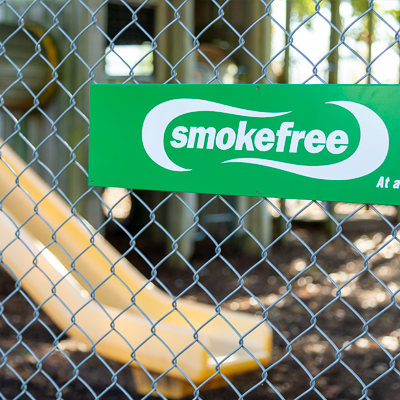
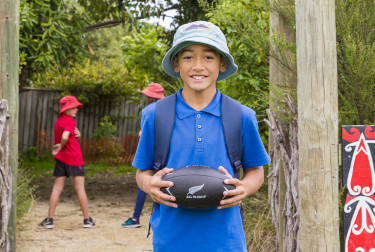

Smokefree schools
Schools play a very important role in helping to keep the next generation Smokefree and creating a Smokefree culture and environment.
By law, all schools, kura kaupapa, early childhood education centres, and kōhanga reo must be Smokefree at all times. This includes all indoor and outdoor areas.
The Smokefree topic is a key part of health and physical education topics. Some schools may also include Smokefree as a part of life-skills curricular.
Building personal and social skills, such as self-esteem and resisting media influence and peer pressure, help children to avoid tobacco use.
Smokefree hospitality areas
All indoor areas in bars, restaurants, cafes, casinos and clubs are required to be Smokefree by law. Eating out is a much more enjoyable experience and thousands of hospitality workers are protected from second-hand smoke.
Many hospitality venues have also made their outdoor areas Smokefree. This is voluntary in some areas but has benefits for your business, staff and customers.
Check whether your local council has a bylaw requiring outdoor hospitality areas (including footpaths) to be Smokefree. You can also find your council's Smokefree dining policy here.
Do you manage or own a hospitality venue and want support to be Smokefree and vapefree in your outdoor dining areas? We welcome any venue that would like to join The Fresh Air Project to contact us. We can help you prepare and provide ongoing support and resources.
Smokefree retailers
A number of retailers around Aotearoa have chosen to go tobacco-free to help reduce the number of young people starting to smoke. A tobacco-free retailer does not sell or stock tobacco products.
It’s about our kids and our communities – ā tātou tamariki, ō tātou hapori.
Smokefree workplaces
All internal work areas are Smokefree by law in New Zealand. But there is much more employers can do to support their workers to quit and create a healthy, productive work environment.
Your workplace can:
- Make your outdoor areas and work vehicles Smokefree. Unlike indoor areas, it’s not a legal requirement, but there are many benefits in doing so.
- Provide information on quit support to employees and organise quit support groups in your workplace.
- Make sure Smokefree signs are in place.
Your workplace is more likely to take effective action if it has a workplace health committee that puts a Smokefree workplace policy in place. It works best if both employees and managers are closely involved.
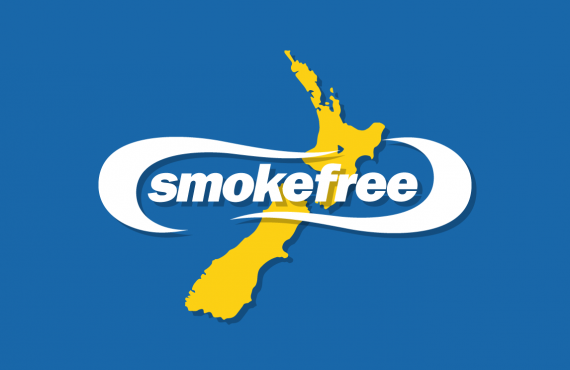
Implementing the Smokefree 2025 action plan will save lives
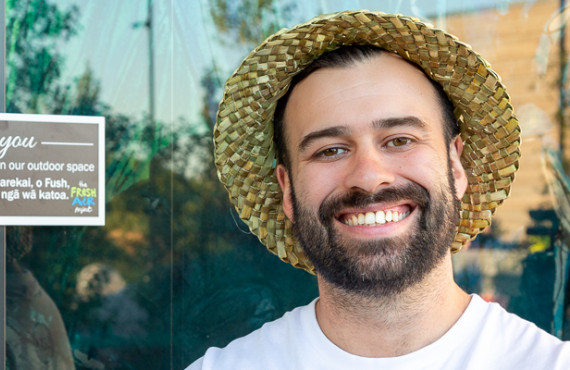
We advocate on behalf of all New Zealanders to change laws and policies to reduce cancer risks and i…
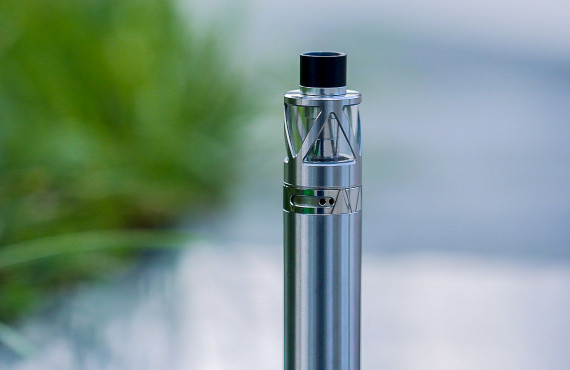
The Cancer Society is pleased to see the new vaping legislation passed with general cross-party supp…
